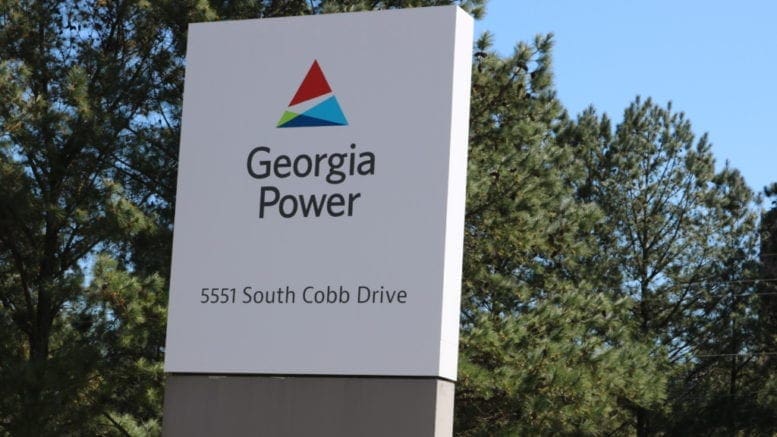by Stanley Dunlap, Georgia Recorder [This article first appeared in the Georgia Recorder, republished with permission]
May 30, 2023
This story was updated at 4:57 p.m. on Tuesday, May 30, 2023, with additional comment.
The nation’s first nuclear expansion project in 30 years reached a breakthrough this week with one of Plant Vogtle’s new reactors reaching 100% power capacity.
Georgia Power announced Monday that Plant Vogtle’s Unit 3 reactor had reached its maximum energy output, which the utility says can power an estimated 500,000 homes and businesses.
The milestone reached at the plant located near Augusta is an indication that the snakebitten project is finally nearing completion after years of setbacks and cost overruns that will have Georgia Power customers footing the bill for many years ahead.
Georgia Power officials and other Vogtle backers say the long road to expanded nuclear power capacity has been worth the wait as the company transitions away from its heavy reliance on coal-fired power plants to cleaner sources of energy for its 2.7 million customers.
“Unit 3 is currently undergoing testing through the full range of plant operations, including safely running at various power levels and operating through real-life conditions just as it will over the next 60 to 80 years after the unit enters commercial operation,” said Kim Greene, chairman, president and CEO of Georgia Power.
“As we enter the final stages of startup testing, reaching 100 percent power for the first time is an exciting milestone. It tells us we’re close to finishing the unit safely and bringing it online to power Georgia homes and businesses with reliable, emissions-free energy for decades to come.”
Georgia Power officials now predict that Vogtle’s Unit 4 reactor will be fully functional by early 2024.
State regulatory analysts, clean energy advocates and others have criticized Georgia Power and Southern Co. for the project’s mismanagement and inaccurate projections as the original cost estimate of $14 billion has since ballooned to more than $35 billion.
Georgia Power customers will begin paying an additional $3.78 on their utility bills once Unit 3 begins generating electricity. And starting in June, Georgia Power customers will see a $16 increase on the average household’s monthly utility bills to pay for fuel costs.
In 2025, a typical Georgia Power household will spend an estimated $45 more on monthly utility bills because of the nuclear expansion as well as fuel and electric rates hikes.
Vogtle’s expansion was first approved by the Georgia Public Service Commission in 2009, with the two reactors originally scheduled to be operational by 2017.
The project faced a major challenge in 2017 when contractor Westinghouse Electric declared bankruptcy.
Vogtle’s construction was further hampered by work shortages during the pandemic and poor oversight, which resulted in quality control violations.
Stephen Smith, executive director of the Southern Alliance for Clean Energy, said that the billions spent on Vogtle should have been invested on cleaner, more reliable and more cost-effective renewable energy.
“Clearly getting the reactor up to 100% power is the milestone, but the milestone came at what cost?” Smith said. “This has been a very tumultuous and difficult process for ratepayers.”
Georgia Recorder is part of States Newsroom, a network of news bureaus supported by grants and a coalition of donors as a 501c(3) public charity. Georgia Recorder maintains editorial independence. Contact Editor John McCosh for questions: info@georgiarecorder.com. Follow Georgia Recorder on Facebook and Twitter.
